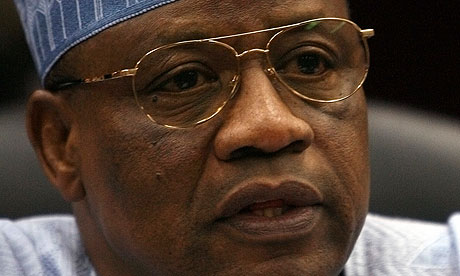The post-war settlement in Europe, after the second world war, included the welfare state and state regulation of the economy. A change of direction was marked by Ronald Regan in the US and Margaret Thatcher in Britain in the 1980s. They introduced neoliberalism with an emphasis on privatisation, deregulation and free trade.
The Structural Adjustment Programme (SAP) was introduced in 1985 by the Ibrahim Babangida military government. The World Bank and International Monetary Fund (IMF), were pushing SAPs across Africa to introduce neoliberalism. Structural Adjustment entails free market enterprise policies, deregulation and privatisation, low wages and encourages labour casualization.
The World Bank and IMF were able to encourage African governments to adopt neoliberal Structural Adjustment due to their high debts and economic problems. In 1973, the then head of state, Yakubu Gowon, had announced that the problem of Nigeria was not the lack of funds but how to spend the oil money. But by the mid-1980s the price of crude exports had fallen by the at least 40%. The past glut of money had also encouraged corruption.
The arguments of the World Bank and others provided an excuse for the Nigerian Government to engage in economy policies that massively increased inequality and hugely benefited the elite. They were able to loot so much from privatisation and more through corruption. In contrast, the poor remained poor, as the minimum wage was not increased in line with inflation and subsidies, especially fuel subsidies, were removed. The public sector was underfunded so the poor had to pay for education for their children and healthcare when they fell sick.
In the 1986, 570 State Owned Enterprises were sold to private entities, unfortunately only 37 of these are still functioning today. This defeats the argument of the Neoliberal economists that the private sector is better at managing such organisations.
Unfortunately, successive governments in Nigeria have continued with these anti-poor people neoliberal programs. There was no fundamental difference between the SAP of Babangida, the 7 Point Agenda of Yar’Adua (PDP), the Transformation Agenda of Jonathan (PDP) and the Economy Recovery and Growth Plan (ERGP) of Buhari (APC). Privatisation has continued under Buhari, fuel prices, especially those for kerosene, still increase, funding for public education and health remains abysmally low and the minimum wage stagnates at N18,000.
Atiku of the PDP has indicated that he will continue with neoliberal policies. In a presentation at Chatham House he said that he would grant the big enterprises tax relief. He has not indicated that he would increase funding for education (demanded by the current ASUU strike) nor increase the minimum wage demanded by the NLC. The Obasanjo/Atiku government of 1999-2007 underfunded public education just like their successors. Obasanjo owns a private university, Bells University, and Atiku joined the American University of Nigeria immediately after leaving government.
The mainstream political parties (APC and PDP) have very similar anti-poor people neoliberal policies. These are still supported by the World Bank and the current governments of US, Britain, China, France etc. This explains why politicians can easily cross-carpet from one party to the other. They are same poison in different cups.
The New Minimum Wage was due for review in 2016, yet the Government is still foot dragging. It has still to submit its proposals to the National Assembly despite having received the report from the tripartite committee in October. With this report, the Nigerian Labour Congress (NLC) accepted an increase to only N30,000 a month. An effective cut in the the real value of the minimum wage of at least a third.
Neoliberal policies created massive wealth for the elite especially during the economic boom of the 21st century until 2008. This is why there were 26 executive jets at the wedding of Babagida’s daughter in May 2017. Inequality and corruption have increased in leaps and bounds as the incomes of most people stagnated at best during this period.
In the coming February/March general election a vote for either the APC or the PDP is clearly is a vote for the continuation of anti-poor people programs initiated by the SAP neoliberal reforms of the 1980s.
There are a number of smaller parties contesting these elections who do provide an alternative, but they are divided and too small to provide a real alternative at the moment. If they unite the elections may provide a base to build for future elections, especially if they continue to support on-going trade union struggles like the ASUU strike and the fight for a decent minimum wage.
The Socialist Workers and Youth League (SWL) welcome the organising and fighting consciousness of the Africa Action Congress (AAC) – Take it Back movement and their presidential candidate, Sowore. We also support other progressive parties standing in these elections like the Labour Party, the National Conscious Party and the Socialist Party of Nigeria. But the real future depends on collective action by the working class demonstrated by the current ASUU strike over education funding and the struggle by the NLC for a proper minimum wage.
by Lai BROWN









